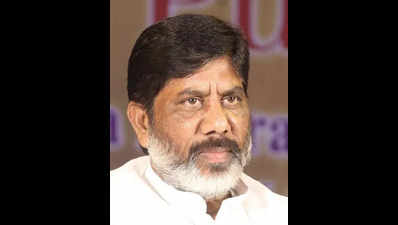Bhatti slams Centre’s overreach in education policies

Done: arun
Hyderabad: Deputy chief minister Bhatti Vikramarka on Thursday raised concerns over the central govt’s growing interference in key educational decisions, stating that while the Centre expects state govts to fund and maintain universities, it is gradually stripping away the states’ roles in crucial areas—from appointing vice-chancellors to determining admissions.
Bhatti warned that if this trend continues, states will be relegated to mere participants in ribbon-cutting ceremonies for new building inaugurations.
Speaking at the National Higher Education Conclave in Thiruvananthapuram, Bhatti emphasised that education policies should be tailored to meet the specific needs of each state, rather than being centrally dictated. “The new UGC regulations are like being asked to pay the bill but not having any say in ordering the food,” he said. Chief minister A Revanth Reddy was unable to attend, and Bhatti represented the state.
He strongly advocated for greater state autonomy in shaping their educational future. He further remarked, “When states unite and voice their opinions collectively, their influence can reach far and wide—history has proven this.” He added that education should be a tool to open minds, not to close them. “Autonomy and good governance are essential to achieving this goal, both now and for future generations,” Bhatti said.
Bhatti pointed out that education is a subject on the concurrent list and not a monopoly of the Centre. He explained that each state builds its educational system based on its unique needs and aspirations, and one-size-fits-all policies cannot work.
“No state can provide quality education without the autonomy to design and implement its own policies. When states come together with a unified goal, the Centre must listen,” he stressed. “States are not mere administrative units; they are the lifeblood of the country’s progress,” he observed.
Bhatti concluded by urging the Centre to engage in dialogue, not coercion, stating, “If the Centre truly believes in cooperative federalism, it must involve states in meaningful discussions on this matter, respecting the pulse of the students, their aspirations, and the challenges they face.”
















